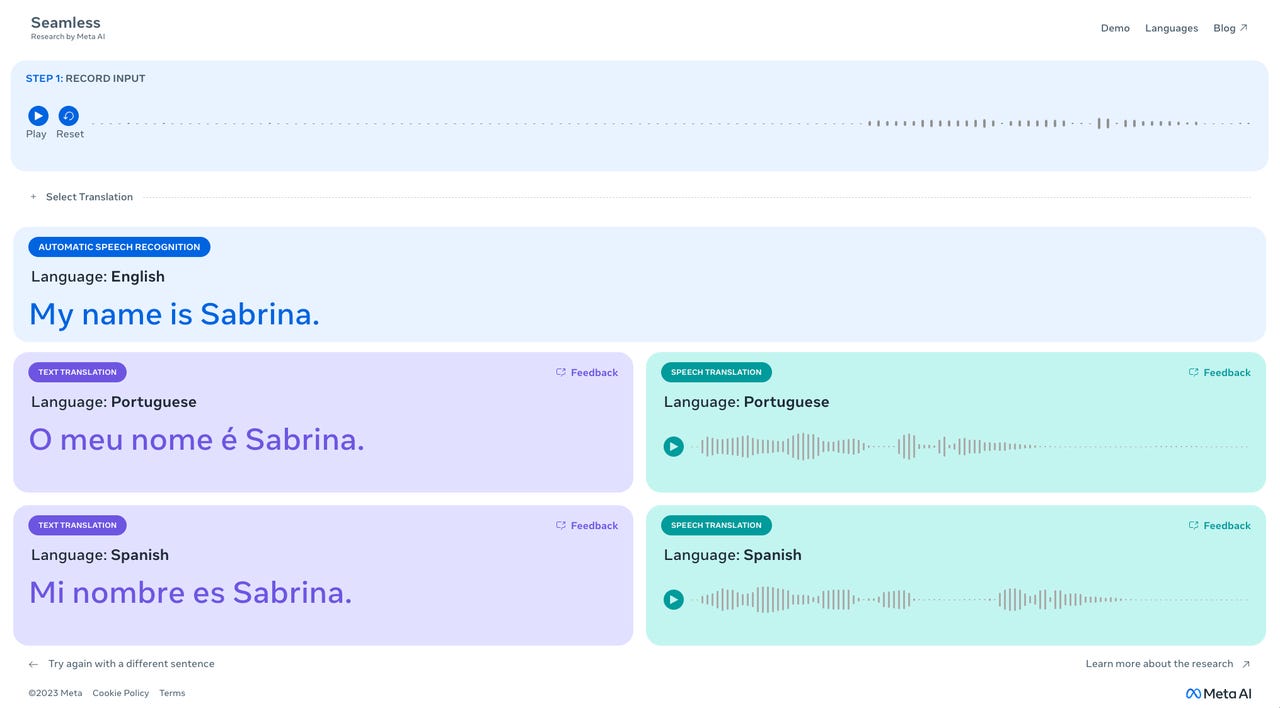You can demo Meta's AI-powered multilingual speech and text translator. Here's how

Within seconds of recording my audio, the model produced the text translation accompanied by an audio translation.
See you later, Google Translate. Bis später. Hasta luego.
Learning another language is hard work. Meta's new AI translation model is here to do the heavy lifting for you, and you can even try a demo for yourself.
Also: Meta releases big, new open-source AI large language model
On Tuesday, Meta announced SeamlessM4T, the first all-in-one multimodal and multilingual AI translation model that supports nearly 100 languages depending on the task. The model can perform speech-to-text, speech-to-speech, text-to-speech, and text-to-text translations.
Introducing SeamlessM4T, the first all-in-one, multilingual multimodal translation model.
— Meta AI (@MetaAI) August 22, 2023
This single model can perform tasks across speech-to-text, speech-to-speech, text-to-text translation & speech recognition for up to 100 languages depending on the task.
Details ⬇️
Meta claims that the single-system approach of SeamlessM4T reduces errors and delays, increasing the efficiency and quality of the translation.
SeamlessM4T is publicly available with a research license, which allows researchers and developers to leverage and build on the model. However, even if you aren't a researcher or developer, there is a way for you to try out the model, too.
Also: 4 things Claude AI can do that ChatGPT can't
All you have to do is open this demo link in your browser and record a complete sentence you would like translated. For best results, Meta recommends trying this in a quiet environment.
Then, you can select up to three languages into which you want the sentence translated. Once you are done inputting your sentence, you can view a transcription and listen to the translations.
Also: Could you soon be running AI tasks right on your iPhone? MediaTek says yes
I tried the demo and was impressed with the accuracy and speed of the results. Within seconds of recording my audio, the model produced the text translation accompanied by an audio translation, as seen in the photo above.
Because this is an experimental research demo, Meta cautions that it can produce inaccurate translations or change the meaning of your input words. If users experience these inaccuracies, Meta encourages them to use the feedback feature to report the errors so the model can be improved.
